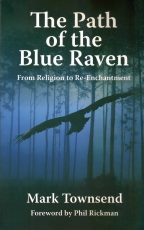Interview – Alan Markovitz – Topless Prophet
Saturday, February 27th, 2010Rhodes Review: What are some lessons you learned that can be applied to other businesses?
Alan Markovitz: Many lessons are applicable, such as these:
- Never stand still, especially when you’re leading the competition. Whatever strategic advantage you have is short lived and can be copied. Keep looking to reinvent, expand, upgrade or overhaul. When you’re on a roll, look for the next and best opportunity to extend your winning streak or more accurately, project your formula, and capture as much market share as you can afford to.
- Don’t be intimidated. I was once threatened by a competing South Florida club when we opened up for business and some “Wise Guys” told us to get out of town. I ended up testifying against the Mob for the Feds.
- If you sleep with the help, you might need help. In my single days, young and feeling wealthy and powerful, I would sample my talent. However, it’s easy to get distracted and lose control over someone who not only works for you but you sleep with. Avoid the conflicts and headaches and keep away from the staff.
- Stand up for your rights or you’ll never be taken seriously. This was true when I had to resort to litigation, on numerous occasions, even in a losing battle. But you must also know what’s worth fighting for and when to throw in the towel.
- The rules can change on you overnight. My South Florida business went into the toilet when laws were changed to prevent nudity in a place where alcohol was served. You never can see it coming and when it hits, you need to determine when to walk away.
- Have a vision and follow it. I knew early on, when I first set foot in a topless club as a teenaged patron that I wanted to own a strip club. I got a job there, learned the business, and then became a co-owner. I wanted to create a first-class adult entertainment center that would be visited upon by celebrities and athletes. I wanted to take a blue-collar industry and give it a white collar. It’s worked out well.
- You can manage through any crisis. I did. I survived two different life-threatening shootings. I survived my club being raided and smeared. I survived some bad business deals. I worked with a partner for a period of time while he was on trial for arranging my murder. I dealt with corrupt politicians, dirty cops, and out-of-control patrons. The key is to stay focused on the prize and know that much of your success is related to how you manage problems.
- Come back from a setback, wiser and more determined. I learned a costly lesson when a business deal went sour and cost me a million bucks. I was swindled by sleaze but if I wasn’t aggressive and gutsy in business I wouldn’t have all the hits and successes that I have had. I’ll take a loss that’s short term and temporary if in the end I’m on top.
- Experiment and take a chance. I tried a few new things that in the end didn’t pay off but unless you try new ideas, you won’t get to succeed. I tried the idea of arranging for strippers on a golf course. I also chartered flights to Las Vegas that featured performing strippers.
- Believe it or not, the way to make money is not always through your core talent. Sure, the 300+ dancers that work at one of my clubs bring in money, but we make our real money off of alcohol, cigars, food, and merchandise. Always look at the extra ways you can turn a buck.
- Link with a brand name. In Detroit, our Penthouse Gentlemen’s Club is striking gold and the Philadelphia branch of the Penthouse Club just opened this summer to great fanfare. There are only a handful of Penthouse clubs in the U.S. The name represents quality, security, and the assumption you’ll be treated well as a patron.
- In business, you can afford to be a little bit early in striking a deal, but you can’t be a second too late. Better to leave something on the table than to lose the whole tamale through greed.
Rhodes Review: Have you had to battle a lot (you mentioned one example in your book) with protest groups?
Alan Markovitz: Oh sure. Every day is a battle. In my home town of Detroit the local government wants to make the laws more restrictive for clubs like mine. We have a recession that is hitting us harder than most parts of the country. And we always have potential problems with protest groups. Some groups out there believe there is something wrong with people enjoying beautiful women. We need to get over it. Nudity is perfectly normal.
Rhodes Review: How does economy (such as the recent problems) affect your business?
Alan Markovitz: All business can be hurt by the poor economy, but luckily, we’ve been hurt far less than others. Certainly, business account spending and business trip clients are down. But there is no shortage of individuals who want the company of a beautiful woman for the price of a lap dance.
Rhodes Review: What caused the contract to be put out on you?
Alan Markovitz: At a club I had owned some years ago my partner had a contract put out on me. He wanted the club to himself. I had to work side by side with him for 6 months after he was arrested for trying to hire someone to kill me, until the FBI got its trial going. Worst of all, he was acquitted.
Rhodes Review: Where do you see your business headed in the future?
Alan Markovitz: Unless technology can duplicate the touch of a woman, my business will be around a long time. I envision government laws to become less restrictive over time. The process of mainstreaming the acceptance of the club experience is happening.
Rhodes Review: What is the most unusual story that’s occurred in your business?
Alan Markovitz: It’s a business filled with many unusual stories and people. I mention dozens of such odd situations in my book. For instance, I was shot not once, but twice, at my club. I wasn’t robbed or anything – once was by an off-duty cop who shot me accidentally and the other was a dancer I had dated who wasn’t happy when fired her for turning tricks on club premises.





 Like
Like






